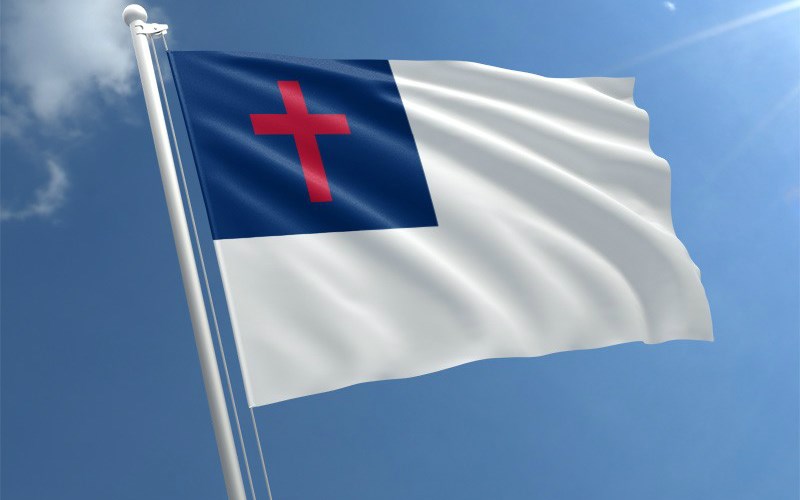The world-recognized Christian flag, with its white field and red Latin cross, will fly tomorrow on a city-owned flag pole.
Michael King of the Massachusetts Family Institute says the ceremony is set for 11 a.m.
Hal Shurtleff, who leads the patriotic history group Camp Constitution, sued the City of Boston in 2017 after he was denied a turn to fly the Christian flag on a City Hall pole that exists to fly flags for countless causes, from transgender rights to Veterans Day.
Liberty Counsel represented Shurtleff at the U.S. Supreme Court, where oral arguments were heard in January and where a rare 9-0 opinion was announced in May.
“Which just goes to show,” King observes, “how much the City of Boston was truly discriminating against Hal Shurtleff and his desire to raise the Christian flag in remembrance of Constitution Day."
Liberty Counsel founder Mat Staver has pointed out the City of Boston approved a total of 284 applications for a turn at the flag pole but only one application - to fly the Christian flag - was ever turned away.
"Not one was denied or censored until this one," Staver previously told AFN, "and the only reason they censored this one is because of the word ‘Christian’ on the application."
The stated objection wasn't even the flag: it was the word "Christian" in the application, Staver has said.
Writing for the nine justices, Justice Stephen Breyer said the "key" issue was if the City of Boston controlled the messages on the flags, since the city did not want to appear to endorse religion and violate the Establishment Clause.
"The answer, it seems, is not at all," Breyer, the now-retired liberal justice, wrote. "And that is the most salient feature of this case."

The irony of Boston's objection is the city's storied history during the American Revolution. The city was the site of the colonial riot in 1770 known as the "Boston Massacre." The rebellious "Boston Tea Party" followed in 1773.
The city itself had been settled by English Puritans, fleeing religious persecution, during the 1630s.
In the 9-0 ruling, three other justices on the court - Samuel Alito, Neil Gorsuch and Clarence Thomas - wrote separate, concurring opinions that took the First Amendment issue farther than Breyer did.
According to the Scotusblog website, Justice Kavanaugh wrote a separate and brief opinion over the issue of secular speech versus religious speech. In his writing, the justice said a government "may not treat religious persons, religious organizations, or religious speech as second-class.”







